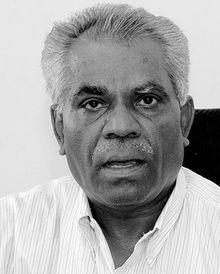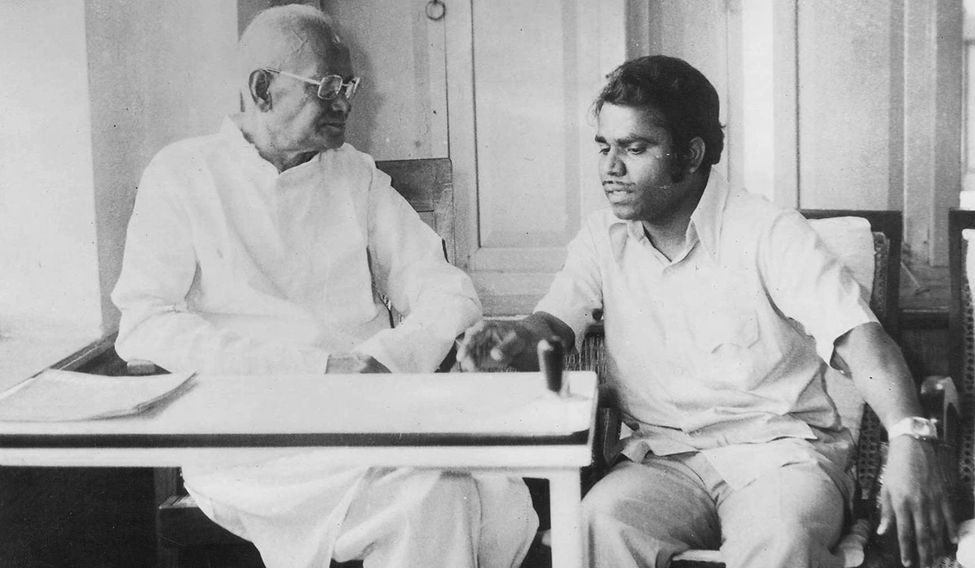
It all started on the night of June 25-26, 1975, when Fakhruddin Ali Ahmed, then president of India, in a nocturnal bout of supplication to prime minister Indira Gandhi, signed a crisp three-line proclamation:
“In exercise of the powers conferred by clause (1) of Article 352 of the Constitution, I, Fakhruddin Ali Ahmed, President of India, by this proclamation declare that a grave emergency exists whereby the security of India is threatened by internal disturbances.”
The Emergency that followed extinguished freedom and democracy, suspended fundamental rights of citizens, fettered freedom of expression and resorted to illegal detention and abuse of citizens. The enactment of draconian laws, unparalleled in any democracy, followed suit.
To justify the demise of democracy, an Intelligence Bureau note was rigged up on July 21, based on which the ministry of home affairs placed a document titled “Why Emergency?” in Parliament. The idea was to create a myth about the Emergency and sell it to the hapless public. This ‘white paper’ depicts Jayaprakash Narayan as the “Enemy No 1 of the state” and puts the entire blame for declaration of Emergency on the JP movement. It opens with words that rival the lies of the Stalinist propaganda:
“The declaration of the Emergency and the various actions taken by the Government to restore discipline, order and stability in the country have been welcomed by people from various strata of Indian society. The Prime Minister has said that the attempt of the Government is to put democracy ‘back on the rails’ and to ensure that the activities of an organised anti-democratic minority did not lead to the end of the very institutions of representative government which the nation had evolved over the years.”
Another myth marketed ad nauseam was that the Emergency ushered in an era of discipline in government departments and that trains were running on time. So much so Railway Minister Suresh Prabhu is stated to have dug up the Emergency period files to find solution to this chronic problem haunting the Indian Railways!
The ground realities, however, were diametrically opposite. I was then the district magistrate of Chandigarh. Within minutes of the presidential proclamation, Giani Zail Singh, then chief minister of Punjab, called up the Union territory’s chief commissioner and directed him to severely discipline the media. He was specific that The Tribune should be sealed and not allowed to come out that morning. He even wanted the editor of the newspaper arrested under the dreaded Maintenance of Internal Security Act!
We did not comply with this direction, thereby incurring the wrath of Chaudhary Bansi Lal, then Haryana chief minister. In his inimitable style, he threatened that if the Chandigarh administration was not willing to act against The Tribune, he will get it done through the Haryana Police. This was how Indira Gandhi was safeguarding ‘institutions of government’ and putting democracy ‘back on the rails’!
More than the loss of personal freedom and liberty, the Emergency was about basic violations of democratic norms and the crude attempts to legitimise a new type of regime and new criteria of allocation of rights and obligations. The delicately crafted and carefully nurtured fabric of India’s democratic governance was ripped apart and devastated by the imposition of a highly concentrated apparatus of power in the manner of totalitarian Russia.
The Soviet hand in this agenda is suggested by none other than JP himself. This is what he wrote in his Prison Diary on July 22: “Quite a number of Congressmen are disguised Communists. They will go with Indira to the ultimate end. They have always been enemies of democracy. Behind them is the right CPI and behind it is Soviet Russia. Russia has backed Indira to the hilt. Because the farther Indira advances on her present autocratic course, the more powerful an influence will Russia have over this country….”
The Emergency’s blackest spot was an attempt on the life of JP during his confinement in Chandigarh. Mysteriously, starting early November 1975, his health deteriorated sharply. Owing to certain circumstantial factors, I, as the custodian of JP in jail, had serious suspicion about this conspiracy. My assessment was that the ‘Delhi durbar’ considered JP as the only person of stature who could challenge the dynasty and remove it from power as and when elections came, and should, therefore, be put in harm’s way. But by playing hardball with the PMO, this conspiracy was defeated by getting JP released and he was sent to Mumbai's Jaslok Hospital just in time for his kidneys to be saved. JP lived for four more years and succeeded in removing the dynasty from power in the early 1977 elections.
I had not suspected the Soviet link to this devious plot till I read this passage by Kuldip Nayar in a magazine to commemorate the 50th anniversary of the 1965 India-Pakistan war: “Soviet Prime Minister Alexei Kosygin brought the two sides together across the table in Tashkent after the war to broker peace.... But destiny had something else in store. Within a few hours of the Tashkent declaration being signed, Lal Bahadur Shastri died under mysterious circumstances. His family believes he was poisoned. Now, I too feel there was foul play. There was no post-mortem…. The ministry of external affairs refused access to papers relating to Shastri’s death.”
Dynasty was the sole beneficiary of Shastri’s untimely death. It would have been so if JP had also died in jail. It is beyond comprehension as to why successive non-Congress governments have kept a tight lid over these two humongous mysteries.
The Emergency excesses have been benchmarked by the ruling elite and made into reference points for gross violation of civic and human rights. Over a period of time, India has also been drifting towards “state kleptocracy”, a system wherein ruling establishments arrogate the power and resources of the state and govern at will. Myths notwithstanding, this is the stark reality of the Emergency fallout and the root cause of the all-pervading inequity and injustice in the midst of the country’s rapid GDP growth. We can ignore this only at our peril!
Devasahayam is a former Army and IAS officer.







